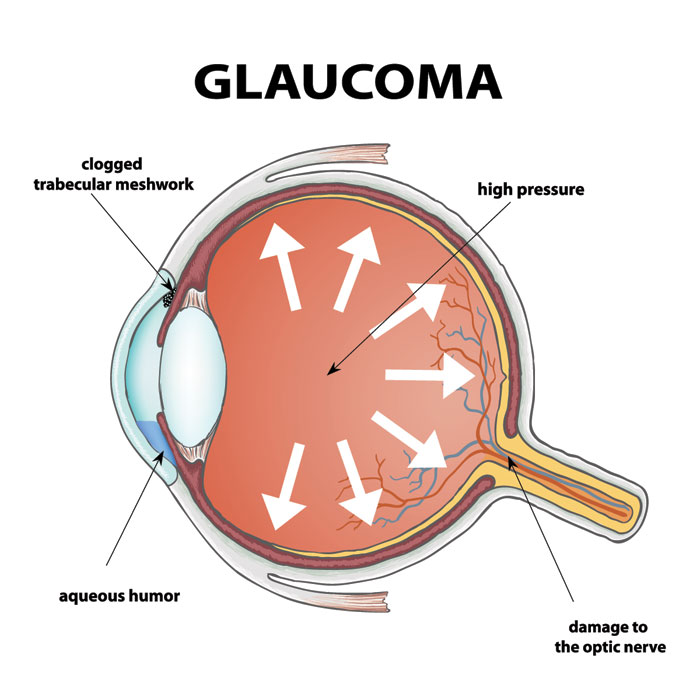At What Age Should You Start Worrying About Glaucoma? Expert Tips and Guidelines
I. Introduction
Glaucoma is often called the “silent thief of sight” because it gradually damages the optic nerve without obvious symptoms in the early stages. Left untreated, it can lead to irreversible vision loss or blindness. This condition affects millions of people worldwide, yet many remain unaware of its risks until it’s too late.
Understanding when to start worrying about glaucoma is essential for protecting your vision. Early detection and timely treatment can make a huge difference in managing the disease and preserving your eyesight.
II. Age as a Risk Factor for Glaucoma
While anyone can develop glaucoma, age is one of the most significant risk factors. The likelihood of developing this eye disease increases as you grow older due to natural changes in eye pressure and optic nerve health.
How Age Impacts Glaucoma Risk
-
Under 40 years old: Glaucoma is relatively rare but not impossible. People with strong family histories or other risk factors should not ignore screenings.
-
40–60 years old: The risk begins to rise noticeably. Experts recommend starting comprehensive eye exams during this stage, especially for those with additional risk factors.
-
Over 60 years old: Glaucoma becomes much more common in this age group, making regular screenings essential.
Studies show that people over 60 are up to six times more likely to develop glaucoma than younger adults.
III. High-Risk Groups and Other Risk Factors
Age is not the only factor that influences your risk. Several other conditions and genetic predispositions can increase the chances of developing glaucoma.
Ethnicity and Race
-
African Americans and Afro-Caribbeans: Higher risk, often at an earlier age.
-
Hispanics and Asians: Increased susceptibility to certain types of glaucoma, including angle-closure glaucoma.
Family History and Genetics
If glaucoma runs in your family, your risk is significantly higher. Genetics play a major role in determining who develops this disease.
Medical Conditions and Lifestyle
-
Diabetes: Associated with higher eye pressure and optic nerve damage.
-
Hypertension: Fluctuations in blood pressure can affect eye health.
-
Severe Myopia (Nearsightedness): Linked to structural eye changes that raise glaucoma risk.
IV. The Importance of Regular Eye Check-Ups
One of the most effective strategies to prevent vision loss from glaucoma is regular comprehensive eye exams. Many people don’t realize they have glaucoma until irreversible damage has already occurred.
Screening Guidelines
-
Baseline eye exam: At age 40, even for those without symptoms.
-
Every 2–4 years: For individuals aged 40–54.
-
Every 1–3 years: For those aged 55–64.
-
Every 1–2 years: For people over 65 or anyone in a high-risk group.
High-risk individuals—including those with a family history, diabetes, or certain ethnic backgrounds—should start screenings earlier and more frequently.
V. Preventive Measures and Tips for Reducing Glaucoma Risk
While glaucoma cannot always be prevented, there are steps you can take to reduce your risk and protect your vision:
-
Maintain a Healthy Lifestyle: Regular exercise helps regulate intraocular pressure.
-
Eat a Balanced Diet: Foods rich in antioxidants and omega-3 fatty acids can support eye health.
-
Avoid Smoking: Smoking can exacerbate eye conditions and impair blood circulation.
-
Manage Chronic Conditions: Keep diabetes, hypertension, and cholesterol under control to reduce additional strain on your eyes.
-
Use Eye Protection: Prevent eye injuries that could trigger secondary glaucoma.
VI. Conclusion
Glaucoma is a lifelong condition, but early detection and consistent care can prevent blindness in most cases. The key question—“At what age should you start worrying about glaucoma?”—has a clear answer: start being proactive by age 40, or earlier if you are at high risk.
Regular eye check-ups, awareness of risk factors, and healthy habits are your best defense. Don’t wait until symptoms appear—by then, damage is often irreversible. Take charge of your eye health today.




